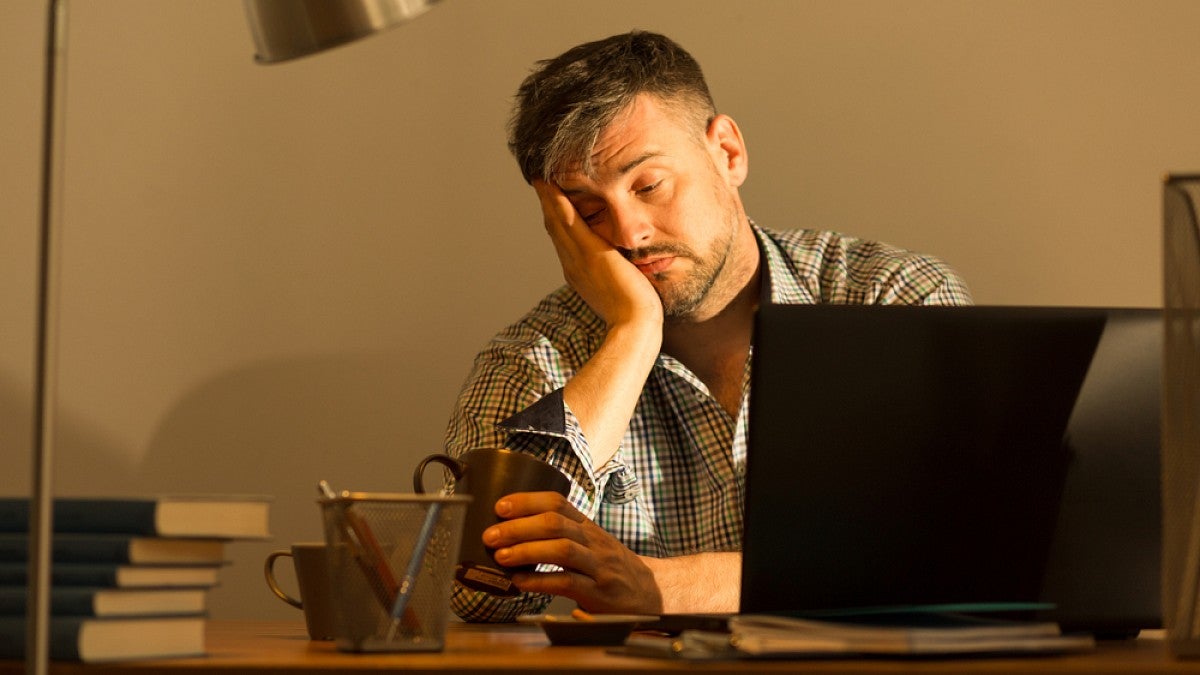A manly man should sleep less and work longer hours, but that stereotypical thinking may be harmful to men’s health and society at large, according to new work by University of Oregon researchers.
Combined data from a series of experiments, detailed in the Journal of the Association for Consumer Research, found that men who sleep less are seen by society as more masculine and more positively judged, a perception not regularly observed for women.
Nathan Warren, a doctoral student in the Lundquist College of Business, conducted the research, along with former UO marketing professor Troy Campbell. Campbell now is chief scientist for On Your Feet, an organization in Portland that works with employees of businesses to be better collaborators, communicators and innovators.
On average, Americans sleep less than the minimum seven hours a night recommended by the Centers for Disease Control and Prevention, and nearly half report negative consequences from insufficient sleep. The problem is seen as especially prevalent in men, who report getting significantly less sleep, on average, than women. A cultural complication is the notion that getting less sleep signals something positive about an individual. In their paper, Warren and Campbell examined a possible stereotype that links sleep and masculinity, along with its underlying mechanisms and its social implications. They conducted 12 experiments involving 2,564 Americans to demonstrate that a sleep-deprived masculinity stereotype exists.
In simple experiment, Warren said, participants were asked to imagine seeing a man shopping for a bed and talking with a salesman. The buyer’s response choices were either “I sleep a lot” or “I don’t sleep a lot.” The mean masculinity rating for those who slept a lot was found to be significantly lower than for participants who slept little.
“We found clear evidence of a stereotype where men who don’t sleep much are considered more masculine than other men, and that those men are generally evaluated more positively than others,” Warren said.In another experiment, participants were asked to ascribe different attributes to a male character, assigned to either a “very masculine and manly” man or a “not very masculine and not very manly” man. Participants in the masculine condition described their character sleeping 33 minutes less sleep per night than the characters described in the not masculine condition.
A final experiment in the paper showed that participants who imagined stating they sleep more than average felt significantly less masculine than participants who imagined stating they sleep less than average.“The social nature of the sleep-deprived masculinity stereotype positively reinforces males who sleep less, even though sleeping less contributes to significant mental and physical health problems,” the authors wrote.
This finding, they noted, may be particularly detrimental because men frequently have significantly more negative attitudes towards seeking psychological help.
“Unfortunately, the problems created by the sleep-deprived masculinity stereotype may reach beyond individuals and into society, as men who sleep less are found to be more aggressive and violent,” they wrote, noting that the notion is an example of the restrictive and toxic characteristics of masculinity
The belief that sleeping less is a signal of masculinity seems to be reflected in the marketplace for sleep-aids, which often rely on feminine imagery like the Lunesta butterfly, and sleep-prevention drinks like Red Bull and Monster Energy, the researchers noted. The bright side of the research, they added, is that “as society continues to challenge traditional definitions of masculinity, attitudes toward sleep may become more positive, and all people might enjoy more nights full of healthy sleep.”
— This story is based in part on a news release issued by the journal


